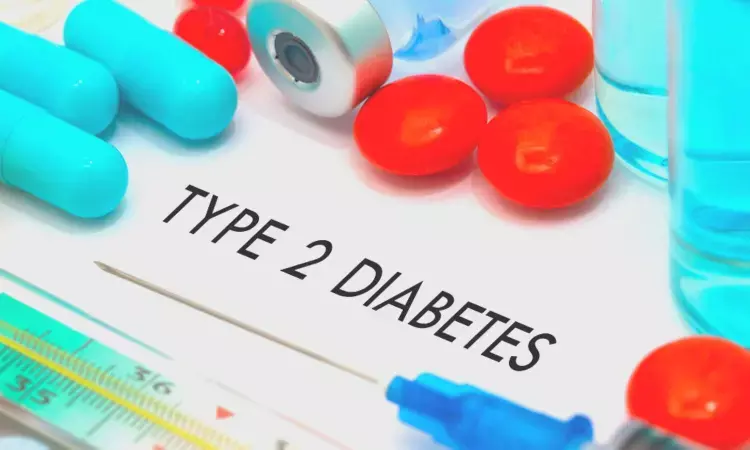- Home
- Medical news & Guidelines
- Anesthesiology
- Cardiology and CTVS
- Critical Care
- Dentistry
- Dermatology
- Diabetes and Endocrinology
- ENT
- Gastroenterology
- Medicine
- Nephrology
- Neurology
- Obstretics-Gynaecology
- Oncology
- Ophthalmology
- Orthopaedics
- Pediatrics-Neonatology
- Psychiatry
- Pulmonology
- Radiology
- Surgery
- Urology
- Laboratory Medicine
- Diet
- Nursing
- Paramedical
- Physiotherapy
- Health news
- Fact Check
- Bone Health Fact Check
- Brain Health Fact Check
- Cancer Related Fact Check
- Child Care Fact Check
- Dental and oral health fact check
- Diabetes and metabolic health fact check
- Diet and Nutrition Fact Check
- Eye and ENT Care Fact Check
- Fitness fact check
- Gut health fact check
- Heart health fact check
- Kidney health fact check
- Medical education fact check
- Men's health fact check
- Respiratory fact check
- Skin and hair care fact check
- Vaccine and Immunization fact check
- Women's health fact check
- AYUSH
- State News
- Andaman and Nicobar Islands
- Andhra Pradesh
- Arunachal Pradesh
- Assam
- Bihar
- Chandigarh
- Chattisgarh
- Dadra and Nagar Haveli
- Daman and Diu
- Delhi
- Goa
- Gujarat
- Haryana
- Himachal Pradesh
- Jammu & Kashmir
- Jharkhand
- Karnataka
- Kerala
- Ladakh
- Lakshadweep
- Madhya Pradesh
- Maharashtra
- Manipur
- Meghalaya
- Mizoram
- Nagaland
- Odisha
- Puducherry
- Punjab
- Rajasthan
- Sikkim
- Tamil Nadu
- Telangana
- Tripura
- Uttar Pradesh
- Uttrakhand
- West Bengal
- Medical Education
- Industry
Acarbose best suited for newly diagnosed type 2 diabetes patients with obesity

China: Acarbose is the first glucosidase inhibitor used in the clinical therapy of type 2 diabetes mellitus (T2DM). The mode of action is that it may delay the absorption of carbohydrates in the intestine to reduce postprandial blood sugar.
A new study published in BMC Pharmacology and Toxicology found Acarbose therapy to be more effective in patients with newly diagnosed type 2 diabetes with low fasting blood sugar, obesity, and low 2-h postprandial blood sugar.
The researchers further suggest that the earlier the diagnosis of type 2 diabetes and continuously treated with Acarbose, the better the response to the treatment will be.
For patients with the diagnosis of type 2 diabetes mellitus (T2DM) diagnosis, Acarbose is one of the optimal drugs. But there is no reporting on emerging patients with the best therapeutic response to acarbose therapy. Considering this, Rong Zhang and the research team from China aimed to investigate the predictors of acarbose therapeutic efficacy in patients with a new diagnosis of T2DM.
Participating in the MARCH study (Study of Acarbose in Newly Diagnosed Patients with T2DM in China), 346 patients with type 2 diabetes received acarbose monotherapy for 48weeks from November 2008 to June 2011.
Change in glycated hemoglobin (ΔHbA1c) was the dependent variable. The assessment of different baseline variables such as sex, age, body mass index (BMI), disease duration, weight, diastolic blood pressure (DBP), systolic blood pressure (SBP), fasting plasma glucose, HbA1c, 2-h postprandial blood glucose, 2-h postprandial insulin, fasting insulin, HOMA-IR, early insulin secretion index (IGI), is under the curve of glucagon (AUC), GLP-1, and insulin were done as independent predictors.
The study led to the following findings:
- At 12 weeks, independent predictors of ΔHbA1c included baseline DBP (β=0.010), body weight (β=−0.012), FPG (β=0.111), and two h PG (β=0.042).
- At 24 weeks, independent predictors of ΔHbA1c included disease duration (β=0.040) and FPG (β=0.117).
- Finally, an independent predictor of ΔHbA1c at 48weeks was disease duration (β=0.038).
"Factors that can be used for predicting the short-term effectiveness of acarbose monotherapy among patients with a new diagnosis of type 2 diabetes include baseline DBP, body weight, fasting blood sugar, and two h PG," the researchers wrote in their conclusion. "In addition, patients with low two h PG, low FPG, and obesity may achieve a better efficacy of acarbose treatment."
"The earlier type 2 diabetes is diagnosed and continuously given acarbose treatment, the better the response to therapy will be."
The study recruited only patients with newly diagnosed T2DM, which may not represent the general population of T2D patients. Also, the study's sample size was relatively small, and bias may be present. The researchers, therefore, warrant further studies with larger sample sizes to confirm the findings. Also, the follow-up of the study was only for 48 weeks. Long-term follow-up might be required to investigate and predict the long-term efficacy of acarbose monotherapy.
Reference:
The study, "Predictors of acarbose therapeutic efficacy in newly diagnosed type 2 diabetes mellitus patients in China," was published in BMC Pharmacology and Toxicology.
DOI: 10.1186/s40360-022-00621-2
Dr Kartikeya Kohli is an Internal Medicine Consultant at Sitaram Bhartia Hospital in Delhi with super speciality training in Nephrology. He has worked with various eminent hospitals like Indraprastha Apollo Hospital, Sir Gangaram Hospital. He holds an MBBS from Kasturba Medical College Manipal, DNB Internal Medicine, Post Graduate Diploma in Clinical Research and Business Development, Fellow DNB Nephrology, MRCP and ECFMG Certification. He has been closely associated with India Medical Association South Delhi Branch and Delhi Medical Association and has been organising continuing medical education programs on their behalf from time to time. Further he has been contributing medical articles for their newsletters as well. He is also associated with electronic media and TV for conduction and presentation of health programs. He has been associated with Medical Dialogues for last 3 years and contributing articles on regular basis.
Dr Kamal Kant Kohli-MBBS, DTCD- a chest specialist with more than 30 years of practice and a flair for writing clinical articles, Dr Kamal Kant Kohli joined Medical Dialogues as a Chief Editor of Medical News. Besides writing articles, as an editor, he proofreads and verifies all the medical content published on Medical Dialogues including those coming from journals, studies,medical conferences,guidelines etc. Email: drkohli@medicaldialogues.in. Contact no. 011-43720751


